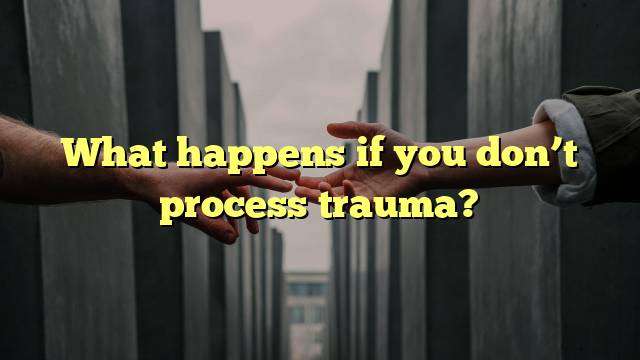Trauma and its Consequences
The effects of trauma can be devastating, both physically and emotionally. While it is not always possible to avoid traumatic events, it is important to understand the consequences of not processing these experiences properly. Neglected trauma can cause a range of health issues such as stroke, heart attack, weight problems, diabetes, and cancer, according to a Harvard Medical School study.
The Long-Term Effects of Trauma
The long-term effects of trauma can be far-reaching and can include both physical and psychological symptoms. Physically, people who have experienced trauma may have difficulty sleeping, headaches, chest pains, and digestive problems. They may also suffer from fatigue and have difficulty concentrating. Emotionally, people may have difficulty regulating their emotions, have difficulty forming relationships, or have difficulty trusting others. They may also have difficulty managing their own behavior, leading to outbursts of anger, depression, or anxiety.
The Role of Trauma Processing
Trauma processing is a term used to refer to the process of working through a traumatic event in order to heal and move forward. This can involve talking to a mental health professional, writing out your experiences, or engaging in activities that help to process and make sense of the trauma. It can also include self-care activities such as exercise, meditation, and relaxation. Depending on the individual’s needs, trauma processing can be done alone or with the help of a therapist.
The Benefits of Trauma Processing
Trauma processing can have a number of benefits. It can help to reduce the intensity of physical and psychological symptoms associated with trauma, as well as reduce the risk of developing further health problems down the line. It can also help to improve relationships and increase self-confidence. Furthermore, trauma processing can help individuals to process their emotions and make sense of their experience, leading to greater insight and understanding.
How to Begin Trauma Processing
The first step in trauma processing is to find a safe and supportive environment in which to do so. This could be in the form of a therapist, support group, or trusted friend. It is important to find a space where you feel comfortable and secure. Once a safe space has been established, it is important to begin to explore the traumatic event and any thoughts, memories, or emotions associated with it. This can be done through talking, journaling, or engaging in activities that help to process and make sense of the experience.
The Importance of Self-Care
Self-care is an important part of trauma processing. It is important to take time to rest and relax, as well as engage in activities that bring joy and pleasure. This could include spending time in nature, listening to music, exercising, or engaging in creative activities. Self-care is also important for managing stress, as it can help to reduce the intensity of any negative emotions associated with the trauma.
Conclusion
Trauma processing is an important part of healing and recovery. It can help to reduce the intensity of physical and psychological symptoms associated with trauma, as well as reduce the risk of developing further health problems down the line. In order to process trauma, it is important to find a safe and supportive environment in which to do so, as well as engage in self-care activities that help to reduce stress and bring joy. With the right support and resources, trauma processing can lead to greater insight and understanding, as well as improved physical and mental health.


